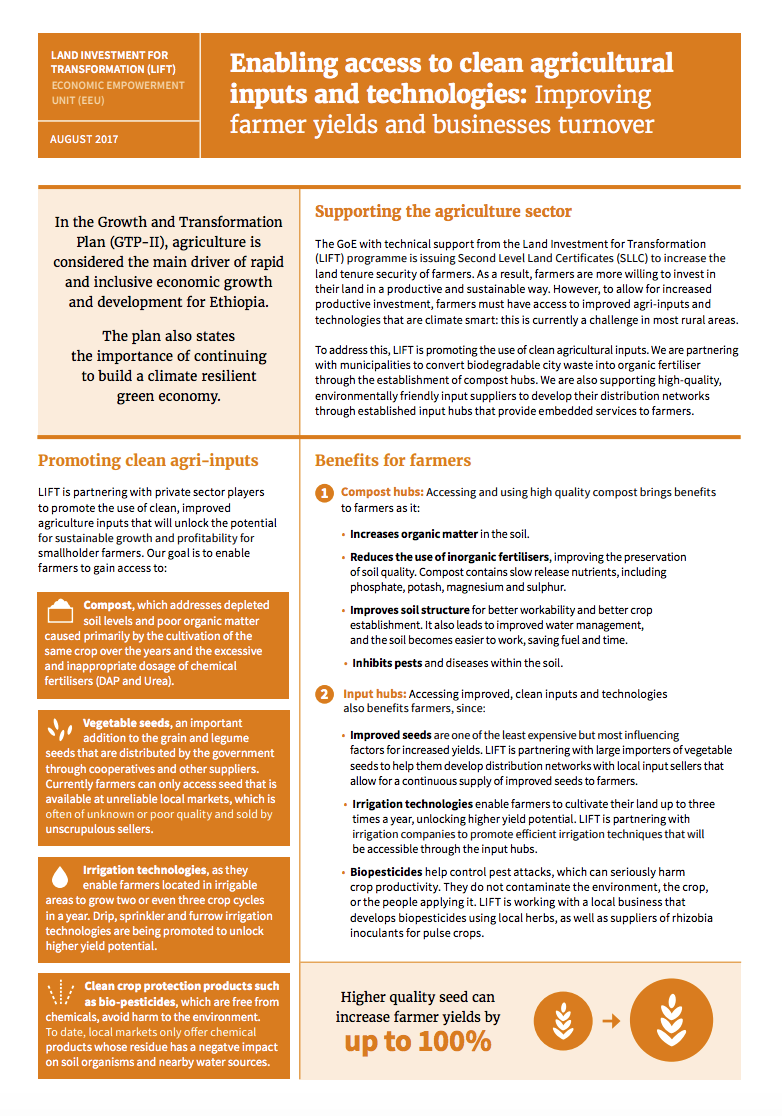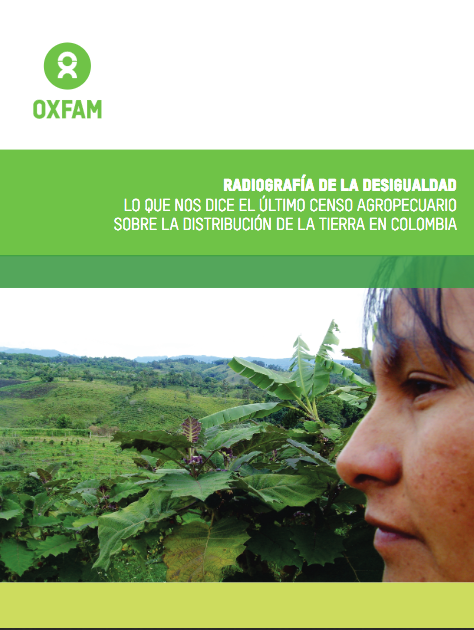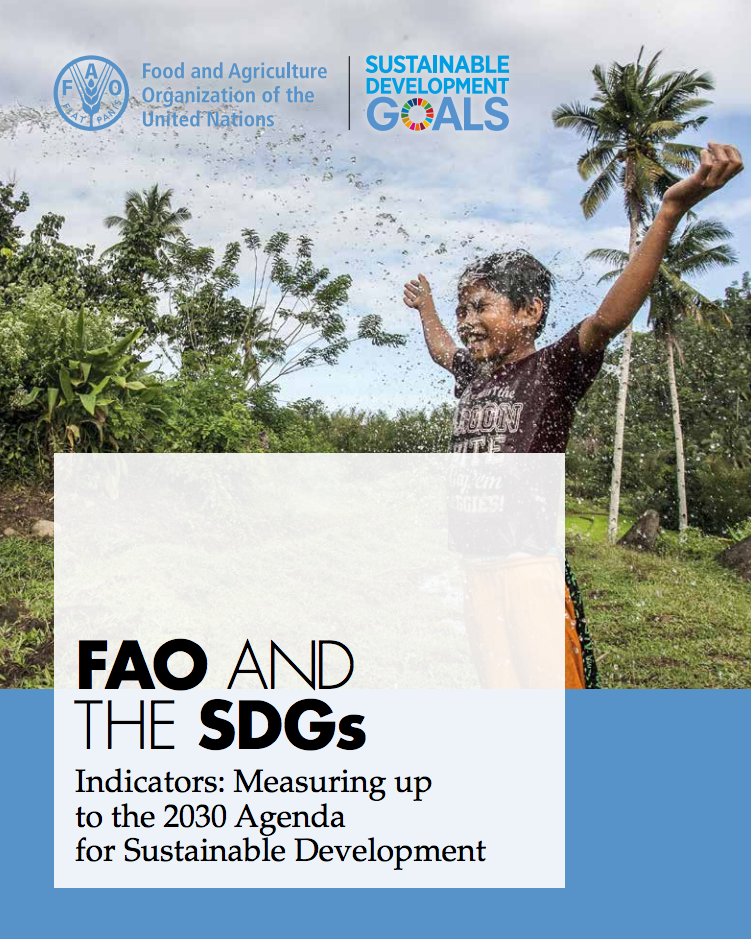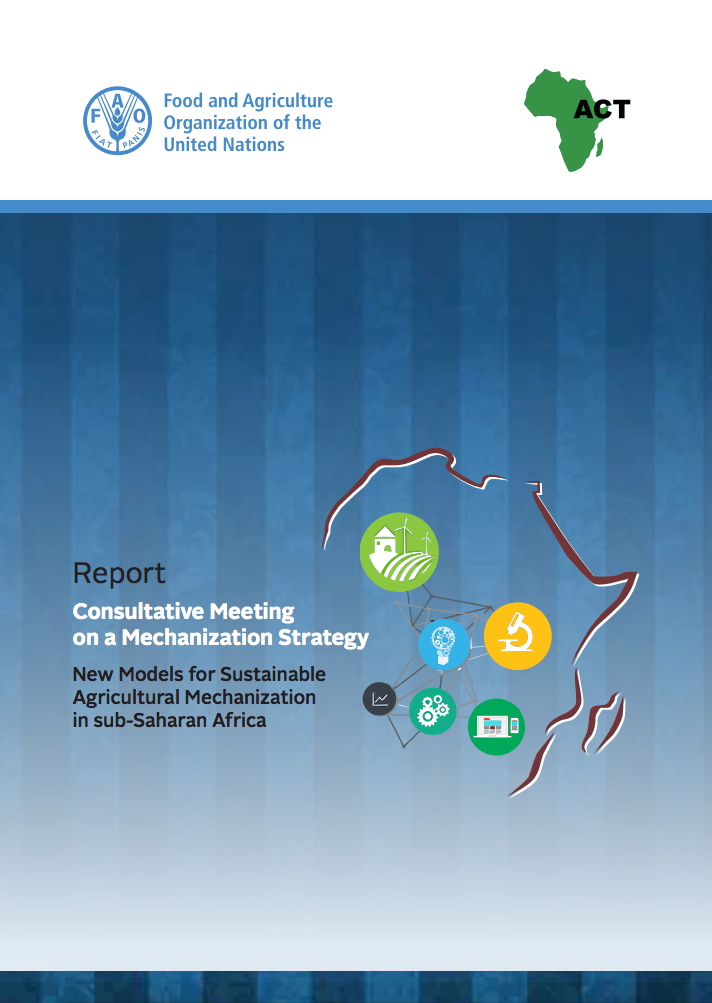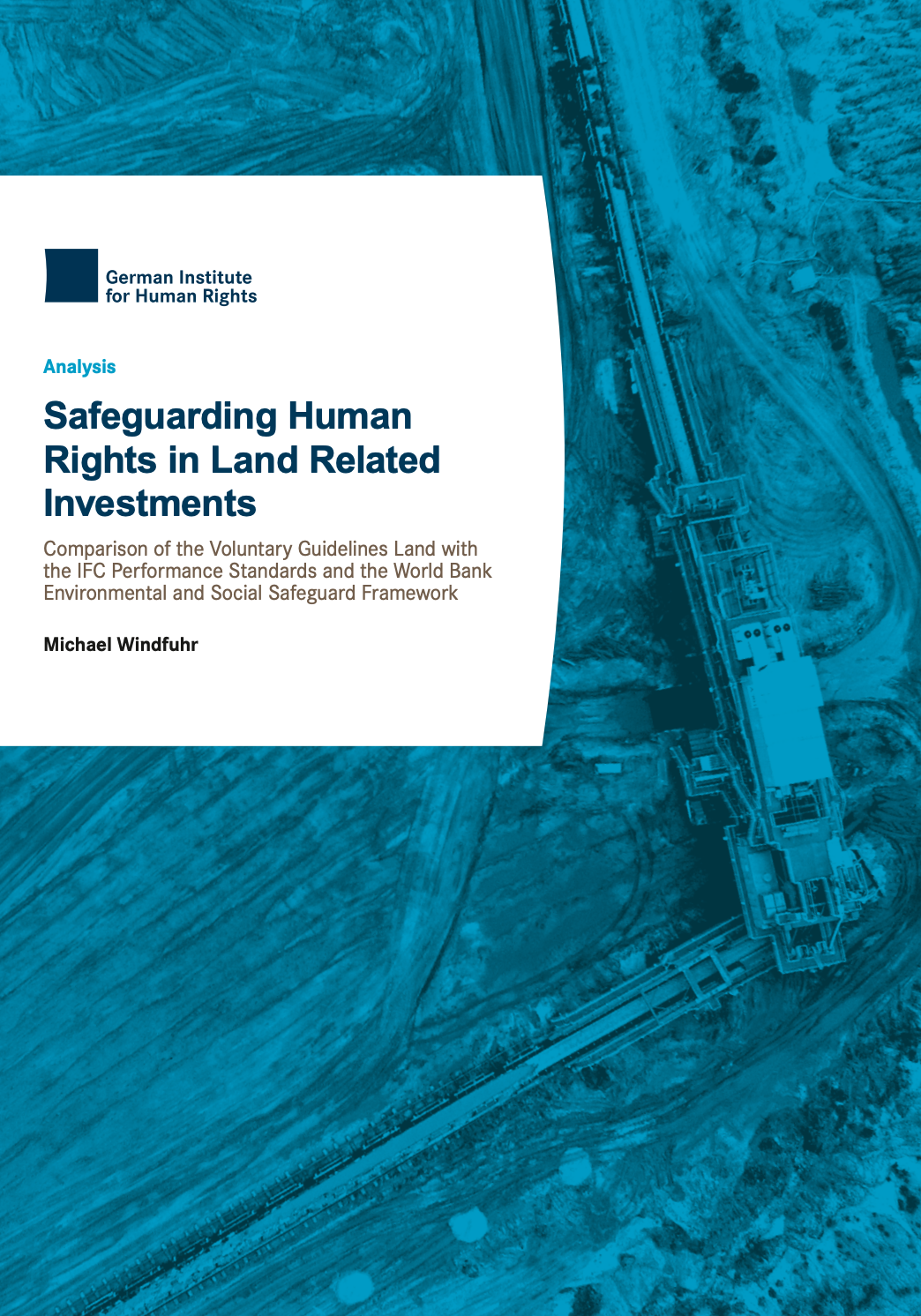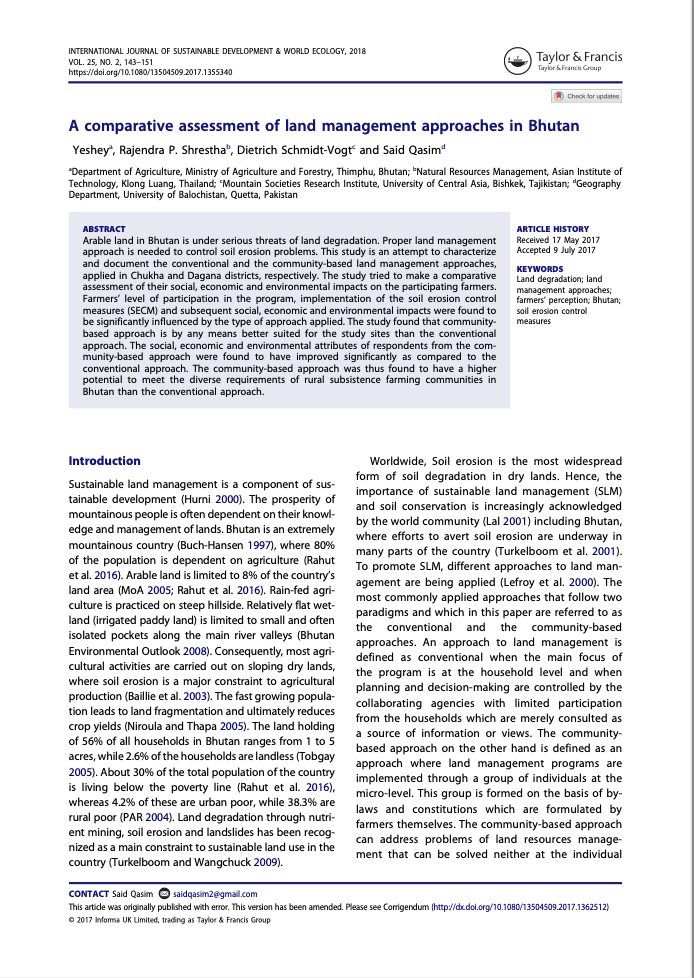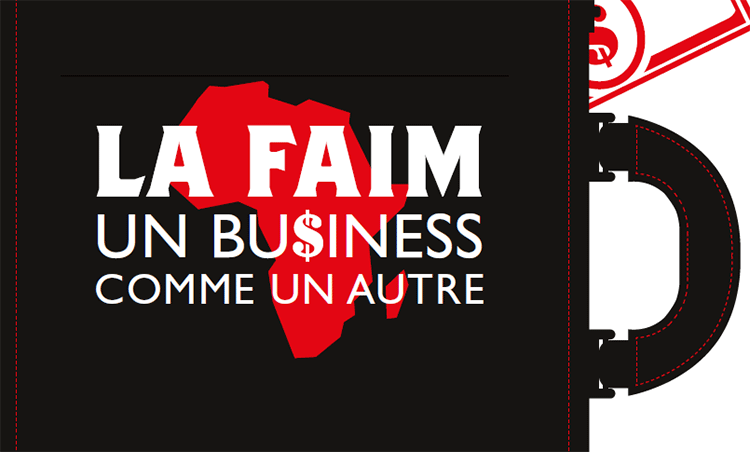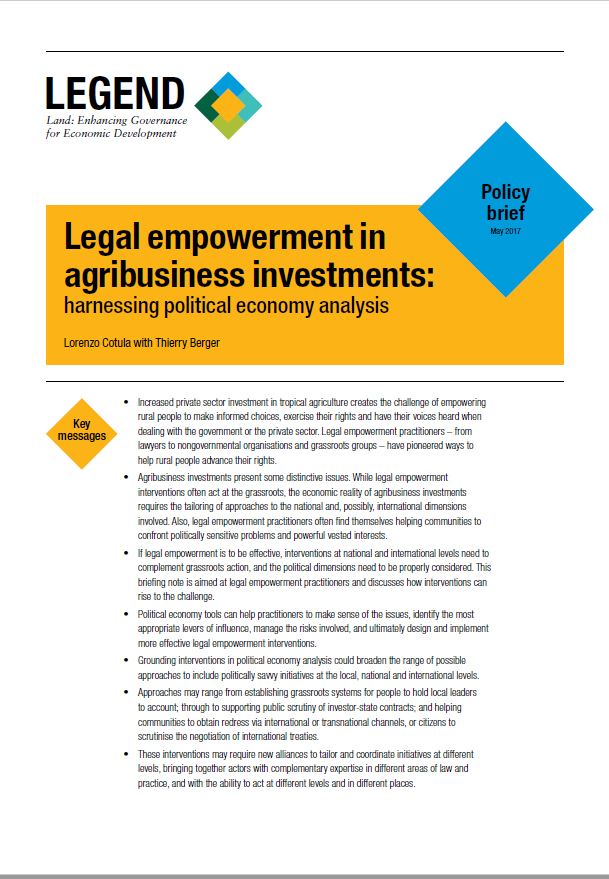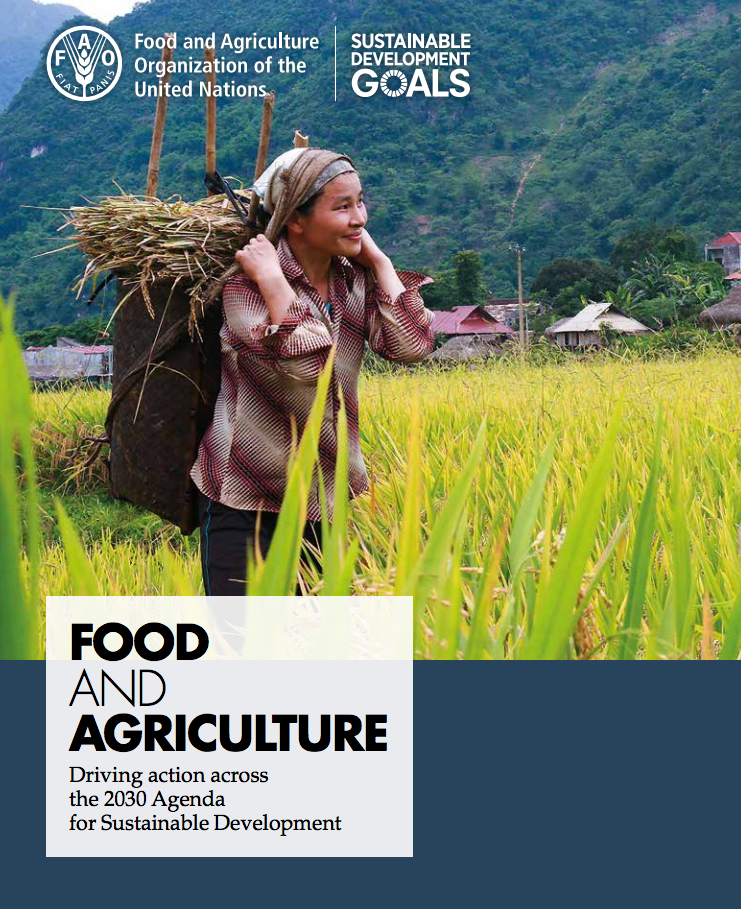Enabling access to clean agricultural inputs and technologies: Improving farmer yields and businesses turnover
Supporting the agriculture sector
The GoE with technical support from the Land Investment for Transformation (LIFT) programme is issuing Second Level Land Certificates (SLLC) to increase the land tenure security of farmers. As a result, farmers are more willing to invest in their land in a productive and sustainable way. However, to allow for increased productive investment, farmers must have access to improved agri-inputs and technologies that are climate smart: this is currently a challenge in most rural areas.

